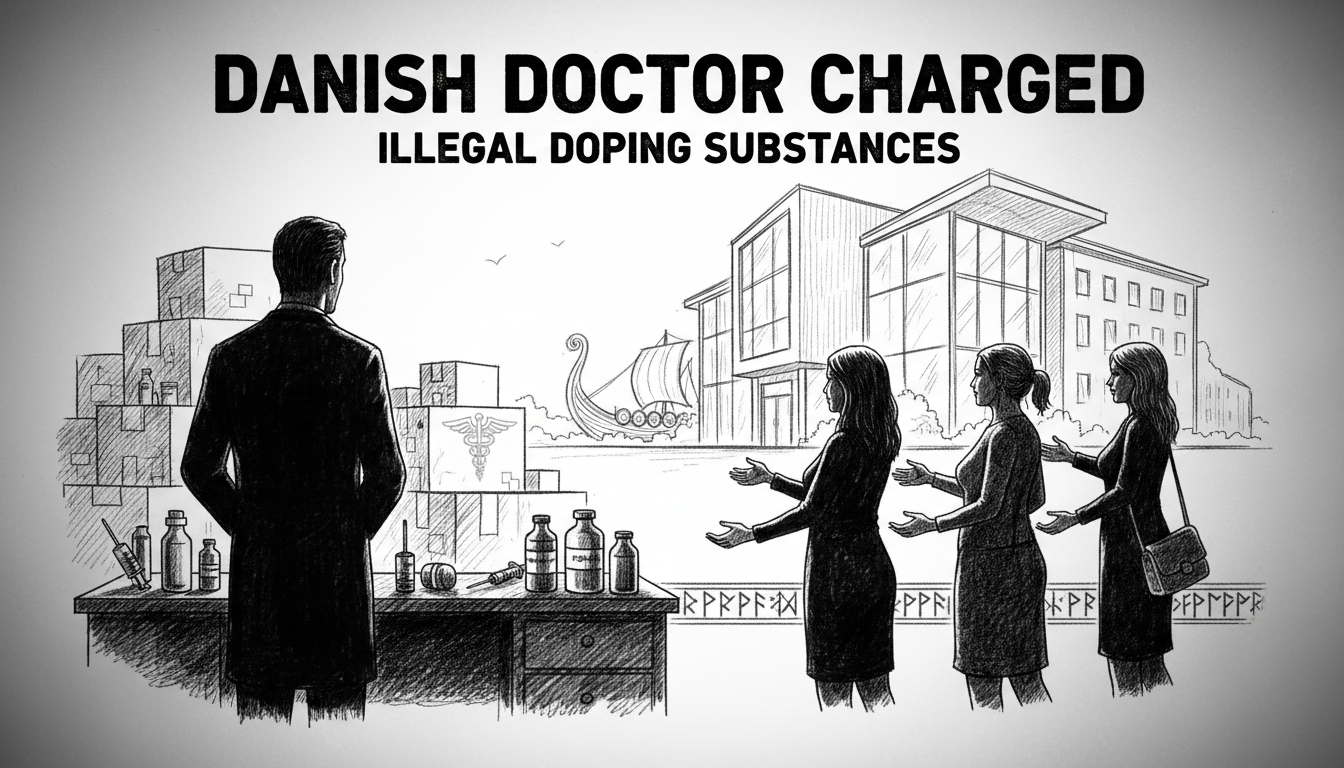Police in Denmark have charged a doctor with selling illegal doping substances to female patients. Authorities discovered large quantities of banned performance-enhancing drugs during searches at both the doctor's private home and medical clinic.
The investigation centers on a physician practicing in Zealand. Police conducted searches on Wednesday at the doctor's private residence in North Zealand. Officers found substantial amounts of illegal doping substances there. The same type of substances appeared at the doctor's clinic in the Midt- and Vestsjælland police district.
The accused doctor denies all charges. Police have notified the Danish Patient Safety Authority about the case. This regulatory body oversees healthcare quality and patient safety nationwide.
According to police statements, the doctor primarily targeted women in menopause. He allegedly sold substances covered by Denmark's doping laws to patients seeking treatment for menopausal symptoms. Police Commissioner Lasse Jensen confirmed these details in an official statement.
This case stands out because the doctor apparently did not serve athletes or bodybuilders. Instead, he focused on menopausal women seeking relief from their symptoms. This represents an unusual pattern in doping cases, which typically involve sports professionals.
Danish doping regulations carry serious consequences for violations. Healthcare professionals face particularly severe penalties for abusing their prescribing authority. The Danish healthcare system maintains strict controls over performance-enhancing drugs.
What does this mean for patient trust in Denmark's medical system? The case raises concerns about prescription drug abuse within legitimate healthcare settings. Patients rely on doctors to follow ethical guidelines and legal boundaries.
The investigation continues as authorities determine the full scope of the alleged activities. Police work closely with health regulators to address potential patient safety issues. The case highlights ongoing challenges in controlling prescription drug misuse.
Denmark maintains some of Europe's strictest anti-doping laws. The country actively pursues violations through coordinated efforts between police and health authorities. This case demonstrates their continued vigilance against pharmaceutical misuse.
Medical professionals in Scandinavia generally uphold high ethical standards. This incident represents an exception rather than the norm. Still, it serves as a reminder that regulatory oversight remains essential in healthcare.
Patients experiencing menopausal symptoms should consult reputable healthcare providers about approved treatments. Numerous safe and legal options exist for managing this life stage. Proper medical guidance ensures both effectiveness and safety.

